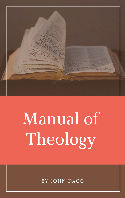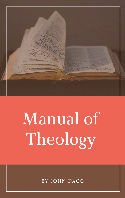| CHAPTER I |
|
page |
|
| AHAZIAH BEN-AHAB OF ISRAEL (B.C. 855-854) |
3 |
|
A weak, shadowy, and faithless king—1. Relations between Judah and Israel—2. Alliance with Jehoshaphat—3. Revolt of Moab—Mesha and the Moabite Stone—4. The fall from the lattice—Baal-Zebub—Elijah calling down fire from heaven—How are we to judge respecting the Elijah-spirit?—Variations of moral standard.
|
|
| CHAPTER II |
|
| THE ASCENSION OF ELIJAH |
19 |
|
Uncertain date—The journey to Gilgal; to Bethel; to Jericho; to the Jordan—The double portion—Chariot and horses of fire—Elisha recrosses the Jordan—The young prophets and their search—Grandeur of Elijah.
|
|
| CHAPTER III |
|
| ELISHA |
25 |
|
Cycle of supernatural stories—Elisha and Elijah—The cure of the unwholesome fountain—”Go up, thou bald-head”—The children and the bears.
|
|
| CHAPTER IV |
|
| THE INVASION OF MOAB |
29 |
|
Death of Ahaziah—Jehoram Ben-Ahab of Israel—Good beginnings—Attempts to recover Moab—Alliance with Judah and Edom—The invasion—An army perishing of thirst—Elisha—Music—Trenches in the wâdy—Error of the Moabites—Their[Pg vi] disastrous rout—Devastation of the country—Mesha propitiates Chemosh—”Great wrath against Israel”—The invading army retreats.
|
|
| CHAPTER V |
|
| ELISHA’S MIRACLES |
40 |
|
Their chronological vagueness—Difference between Elisha and Elijah—Contrasts and resemblances—Social life in Israel—1. The widow and the oil—2. The lady of Shunem—Her hospitality—Her reward—3. The boy’s death—Her distress—The resuscitation—4. Death in the pot—5. The multiplied first-fruits.
|
|
| CHAPTER VI |
|
| THE STORY OF NAAMAN |
50 |
|
The little maid—The leper—Letter of Benhadad to Jehoram—His indignation—Elisha’s message—Naaman’s disappointment and anger—His servants—His healing—His gratitude—Bowing in the house of Rimmon—Mean cupidity of Gehazi—Stricken with leprosy—The axe-head.
|
|
| CHAPTER VII |
|
| ELISHA AND THE SYRIANS |
66 |
|
Syrian marauders—They are baffled—Anger of Benhadad—The vision at Dothan—Meaning of the promises—How fulfilled to God’s saints on earth—Some are delivered, some are not—Elisha misleads the Syrians—His generosity to them—Its effects—A fresh Syrian invasion.
|
|
| CHAPTER VIII |
|
| THE FAMINE AND THE SIEGE |
76 |
|
Horrible straits of the besieged Samaritans—Stress of famine—The King of Israel—The miserable women—Sackcloth under the purple—The king’s fury and despair—He threatens Elisha—The messenger—The king upbraids him—Prophecy of sudden plenty—The disbelieving lord—The extramural lepers—The Syrian camp—The king’s misgivings—The lord killed in the rush of the people.
|
|
| CHAPTER IX[Pg vii] |
|
| THE SHUNAMMITE AND HAZAEL |
87 |
|
The lady of Shunem leaves her estate—Her return—Gehazi talks with the king—Entrance of the Shunammite—Her estates restored—Elisha visits Damascus—A royal present—Benhadad’s illness—Hazael—The dark prophecy—Unexplained death of Benhadad—Hazael’s usurpation—Real meaning of Elisha’s words to Hazael.
|
|
| CHAPTER X |
|
| TWO SONS OF JEHOSHAPHAT |
99 |
|
Jehoram (b.c. 851-843)—Ahaziah (b.c. 843-842)—Jehoram ben-Jehoshaphat of Judah—Perplexing uncertainty of minute chronological details—The blight of the Jezebel-alliance—The husband of Athaliah—His apostasies—Revolt of Edom—Narrow escape of Jehoram—Revolt of Libnah—Jehoram’s murder by his brethren—Philistine invasion—Incurable disease—Ahaziah ben-Jehoram—Joins his uncle (Jehoram ben-Ahab) in the campaign against Ramoth-Gilead—Visits him at Jezreel—Shot down by Jehu.
|
|
| CHAPTER XI |
|
| THE REVOLT OF JEHU (B.C. 842) |
106 |
|
Misery of Jehoram’s reign—Thwarted invasion of Moab—Aggression of Benhadad—At Ramoth-Gilead—The young prophet—The two kings absent from the camp—The dangerous commission—The assembled captains—Jehu secretly anointed—His accession enthusiastically welcomed by the army—His sudden enthronement—His swift resolution—The watchman at Jezreel—The two horsemen—The two kings—Their murder—Ferocity of Jehu—Elijah’s prophecy—Jezebel—She is hurled down—Jehu drives over her body—The curse fulfilled.
|
|
| CHAPTER XII |
|
| JEHU ESTABLISHED ON THE THRONE (B.C. 842-814) |
125 |
|
His politic subtlety—The murder of the seventy princes—The ghastly heaps—Hypocritic ferocity.
|
|
| CHAPTER XIII[Pg viii] |
|
| FRESH MURDERS—THE EXTIRPATION OF BAAL-WORSHIP (B.C. 842) |
131 |
|
Wading through blood to a throne—The ride to Samaria—The brethren of Ahaziah of Judah—The corpse-choked tank of the shepherds—The Bedawy ascetic—The scene of slaughter in the temple of Baal—Did Elisha approve of these atrocities?—Prophetic judgment on Jehu—Ravages of Hazael—Jehu’s anguish—He pays tribute to Assyria.
|
|
| CHAPTER XIV |
|
| ATHALIAH (B.C. 842-836)—JOASH OF JUDAH (B.C. 836-796) |
146 |
|
The murderess-daughter of Jezebel—Fierce ambition—Jehosheba—The rescued child—Reared in the Temple—The high priest’s plot—The coronation of the boy-king—Athaliah enters the Temple—Her murder—The fate of Baal’s high priest—Proposed restoration of the Temple—Joash calls to task the defaulting priests—Death of Jehoiada—Defection of Joash—Murder of Zechariah—Bad record of the line of Jewish priests—Hazael attacks Judah—Defeat of Joash and plunder of Jerusalem—Murder of Joash—Names of the murderers.
|
|
| CHAPTER XV |
|
| AMAZIAH OF JUDAH (B.C. 796-783[?]) |
167 |
|
The House of David—Amaziah brings to justice the murderers of his father, but spares their children—Grounds for this—Different views taken of him by the historian and the chronicler—Splendid victory of Amaziah in the Valley of Salt—Expansion of the story in the Chronicles—His defiance of Joash—His defeat and murder.
|
|
| CHAPTER XVI |
|
| THE DYNASTY OF JEHU—JEHOAHAZ (B.C. 814-797)—JOASH (B.C. 797-781) |
175 |
|
Israel at its nadir—Calf-worship—Oppression of Hazael—Disappearance of Elisha—Repentance of Jehoahaz—Joash[Pg ix] of Israel visits the death-bed of Elisha—”The arrow of the Lord’s deliverance”—Three victories over the Syrians—Death of Elisha, and posthumous marvels—Joash and Amaziah—Contemptuous answer to the King of Judah—Crushing defeat of Judah.
|
|
| CHAPTER XVII |
|
| THE DYNASTY OF JEHU (CONTINUED)—JEROBOAM II. (B.C. 781-740) |
187 |
|
Jeroboam II. the greatest of the kings of Israel—His conquests and wide dominion—A dying gleam of prosperity—Cause of his success—Relations with Assyria—Dawn of written prophecy—Jonah.
|
|
| CHAPTER XVIII |
|
| AMOS AND HOSEA—ZACHARIAH BEN-JEROBOAM (B.C. 740) |
193 |
|
Amos describes the condition of Israel—Growth of usury and vice—Humble origin of Amos—His burdens—Degenerations of the “calf-worship”—Uncompromising denunciation—Collision of Amos with Amaziah the high priest at Bethel—His expulsion from Bethel—The curse denounced—His justification of his mission—Hosea the saddest of the prophets—His pictures of Ephraim—Jeroboam II.—His death—His son Zachariah—His desertion and shameful end.
|
|
| CHAPTER XIX |
|
| UZZIAH OF JUDAH (B.C. 783[?]-737)—JOTHAM (B.C. 737-735) |
209 |
|
Wane of Assyria—Uzziah a wise and good king—His other name Azariah—Expansion of the story of his conquests in the Chronicles—Training of his army—Defeated by the Assyrians (?)—Stricken with leprosy—The story—Jotham acts as his public representative—Diminished power of Judah under Jotham—Beginning of Isaiah’s prophecies—Death of Jotham.
|
|
| CHAPTER XX[Pg x] |
|
| THE AGONY OF THE NORTHERN KINGDOM—SHALLUM, MENAHEM, PEKAHIAH, PEKAH (B.C. 740-734) |
217 |
|
Shallum, an usurping murderer—Rapid disappearance of kings—Distracted epoch—The prophet Zechariah and the three shepherds—Zechariah’s prophecies—The cruel shepherd, Menahem—His savage deeds—Portentous appearance of the Assyrians in Israel—Menahem pays tribute—Tiglath-Pileser—Fulfilment of Hosea’s prophecy—Pekahiah—His murder—Pekah—His alliance with Rezin against Judah—Ahaz appeals to Assyria—Defeat and death of Rezin—Fulfilment of prophecy of Amos—Beginning of the captivity of the Ten Tribes—Tiglath-Pileser’s successors—Murder of Pekah by Hoshea—Horrible state of Israel as described by Isaiah.
|
|
| CHAPTER XXI |
|
| KING HOSHEA AND THE FALL OF THE NORTHERN KINGDOM (B.C. 734-725) |
235 |
|
The name Hoshea—The king and the prophet—Occasional gleams of hope and promise—A humiliating reign—Death of Tiglath-Pileser—Hoshea revolts to Sabaco of Egypt—Seized by Shalmaneser—Samaria besieged—Terrible state of the city—Sabaco renders no help—Usurpation of Sargon—Capture of the city—Greatness of Sargon—Fall of the Northern Kingdom—Blighted destiny—God’s mercy—”God, and not man”—Despoliation of the tribes—Moral of the story—Assyria and Egypt—The strength and weakness of a nation—Machiavelli—Mixture of alien emigrants—Their worship—The lions—Strange syncretism—The Jews and the Samaritans.
|
|
| CHAPTER XXII |
|
| THE REIGN OF AHAZ (B.C. 735-715) |
260 |
|
The chronology—A distracted kingdom—Dark pictures from Isaiah—No sign of repentance—Grapes and wild grapes.
|
|
| CHAPTER XXIII[Pg xi] |
|
| ISAIAH AND AHAZ |
265 |
|
Isaiah—Rezin and Pekah—Ahaz meets Isaiah—He receives a promise of deliverance—He refuses a sign—The sign given him—Immanuel—Birth of Messianic prophecy—Maher-shalal-hash-baz—The promised Deliverer.
|
|
| CHAPTER XXIV |
|
| THE APOSTASIES OF AHAZ |
273 |
|
Moloch-worship—Sacrifice of children—Ahaz appeals to Assyria for help—Ruin of Damascus and death of Rezin—Ahaz does homage to Tiglath-Pileser at Damascus—Records of Tiglath-Pileser—The new altar—Complaisance of the priest Urijah—Unpopularity of Ahaz—Further misgivings—His death.
|
|
| CHAPTER XXV |
|
| HEZEKIAH (B.C. 715-686) |
287 |
|
Dates—Importance of the reign—Hezekiah’s age—His character—His reformation—Partial suppression of the bamoth—Removal of the matstseboth and Asherim—Destruction of the brazen serpent—Trust in Jehovah—Psalm xlvi.—Chastisement of the Philistines—Three parties in Jerusalem—1. The Assyrian party—2. The Egyptian party—3. The national party—Its attitude to the others—Micah—Mockery of Egypt—Anger and insults of the priests against Isaiah—Confidence of Isaiah—Waverings of Hezekiah.
|
|
| CHAPTER XXVI |
|
| HEZEKIAH’S SICKNESS—THE BABYLONIAN EMBASSY |
305 |
|
The story of Hezekiah’s illness misplaced—At the point of death—Isaiah’s message—The king’s agony of mind—The prayer—The reprieve—The sun-dial of Ahaz—The king’s gratitude and thanksgiving—Merodach-Baladan—Rising power of Babylon—Object of the embassy—The king’s action—The prophet’s reproof—The king’s humble submission.
|
|
| CHAPTER XXVII[Pg xii] |
|
| HEZEKIAH AND ASSYRIA (B.C. 701) |
319 |
|
Greatness of Sargon—His campaigns—Defeat of Egypt at the battle of Raphia—Ashdod—Defeat of Merodach-Baladan—Grandeur of Sennacherib—His invasion of Judæa—Earlier collisions—His campaigns—1. Against Babylon—2. Against Elam—3. Against the Hittites and Philistines—Defeat of the Ethiopian Tirhakah at Altaqu—Heavy mulct imposed on Hezekiah—Siege of Lachish—Sennacherib breaks his compact—Distress of Jerusalem.
|
|
| CHAPTER XXVIII |
|
| THE GREAT DELIVERANCE (B.C. 701) |
331 |
|
Embassy of the Turtan, the Rabsaris, and the Rabshakeh—Misery and licence in the city—The conference—Oration of the Rabshakeh—Its effect on the king’s ministers and on the people—Taunting insults of the Rabshakeh—Faithfulness and self-control of the people—Heroic faith of Isaiah—Failure of the embassy—Sennacherib’s threatening letter—Hezekiah’s prayer—Isaiah promises deliverance in the name of Jehovah—The sign—The angel of death—Scene of the catastrophe—The Egyptian tradition of Sethos and the mice—Death and burial of Hezekiah—The campaign as recorded on the Assyrian monuments—The triumph of indomitable faith—Grandeur of Isaiah—Wane of Assyria—Beautiful tolerance of Isaiah.
|
|
| CHAPTER XXIX |
|
| MANASSEH (B.C. 686-641) |
351 |
|
The name Manasseh—His tender age—Influence of evil counsellors—Heathenising party—Their dislike of Hezekiah’s reformation and of the exclusive worship of Jehovah—Tendency to trust in sacrifices and asceticism—Sanctification of licence—Arguments of the heathenisers—Disparagement of the work of Isaiah—Doubts and disbelief—Influence of the bamoth-priests—Reliance on Assyria—The immoral and idolatrous reaction—1. Restoration of the bamoth, and arguments in their favour—2. Adoption of Phœnician nature-worship—3.[Pg xiii] Assyrian Sabaism and star-worship—Connivance of the priests—4. Canaanite Moloch-worship—5. Mesopotamian Shamanism—6. The Asherah—Denunciation of the prophets—Persecution and the shedding of innocent blood—Asserted captivity, repentance, and reforming energy of Manasseh—Difficulties of the story—Reign of Amon (b.c. 641-639)—Wretchedness of his reign—Zephaniah and Jeremiah—Murder of Amon.
|
|
| CHAPTER XXX |
|
| JOSIAH (B.C. 639-608) |
374 |
|
Three vast movements—Jeremiah’s earlier prophecies—The state of society—The Scythians—Prophecies of Ezekiel—Herodotus—The fate of Nineveh—Rise of the Chaldæans—Habakkuk.
|
|
| CHAPTER XXXI |
|
| JOSIAH’S REFORMATION |
385 |
|
Growth of Josiah’s character—Repairs of the Temple—Hilkiah finds the Book of the Law—Intense effect produced on mind of the king—His message to the prophetess Huldah—Great assembly—Renewal of a solemn league and covenant with Jehovah—The bamoth-priests degraded—Defiling of Tophet—He carries the reformation into Samaria—Its stringency and severity—The Passover—Suppression of heathen corruptions—Jeremiah’s share in the reformation—Its dangers and disappointing results—Jeremiah’s warnings against all trust in externals—The prophecy of a new covenant—Note to Chapter XXXI.: The Book found in the Temple.
|
|
| CHAPTER XXXII |
|
| THE DEATH OF JOSIAH (B.C. 608) |
402 |
|
Prosperity and happiness of Josiah—Accession of the great Pharaoh Necho II.—His excursion against Carchemish—Josiah determines to bar his path—Warnings of Pharaoh Necho—Disaster at Megiddo and death of Josiah—Mistaken hopes—God’s dealings with men and nations—Distress among Josiah’s subjects—The king’s burial—Misgivings respecting the future—Sorrow of Jeremiah—Ultimate fulfilments.
|
|
| CHAPTER XXXIII[Pg xiv] |
|
| JEHOAHAZ (B.C. 608) |
411 |
|
Four sons of Josiah—Shallum chosen by the people of the land—Elegy of Ezekiel—Change of name from Shallum to Jehoahaz—Conquests of Pharaoh Necho II.—Jehoahaz summoned to Riblah—Carried captive by Pharaoh to Egypt—Tribute imposed on Judæa.
|
|
| CHAPTER XXXIV |
|
| JEHOIAKIM (B.C. 608-597) |
416 |
|
Eliakim—His change of name—Ignored by Ezekiel—Evil influences—Æsthetic selfishness and oppressive greed—Denunciation by Habakkuk—Denunciation by Jeremiah—Murder of Urijah—Threatened murder of Jeremiah averted by Ahikam—Fall of Nineveh—Utterances of the prophets—Rise of the Chaldæans—Nabopolassar—Defeat of Pharaoh Necho by Nebuchadrezzar—His return to Babylon—His invasion of Judæa—Beginning of the Babylonian captivity—Jehoiakim revolts to Egypt in spite of Jeremiah’s warnings—Imprisonment of Jeremiah—Baruch—The menacing roll—Alarm of the princes—Rage of the king—He cuts the scroll to pieces and burns it—Wretchedness of the times—A great drought—Captives of Jerusalem—Miserable death of Jehoiakim—”That which was found in him.”
|
|
| CHAPTER XXXV |
|
| JEHOIACHIN (B.C. 597) |
431 |
|
Bad influence over him—His brief reign—Allusions to him by Jeremiah at Jerusalem—Second captivity—Regret felt for Jehoiachin—Did he die childless?
|
|
| CHAPTER XXXVI |
|
| ZEDEKIAH, THE LAST KING OF JUDAH (B.C. 597-586) |
437 |
|
His oath to the King of Assyria—Ezekiel’s prophecies—The exiles and the remnant—Weakness of Zedekiah—Continuance of idolatry as described by Ezekiel—The king breaks his[Pg xv] oath with Assyria—Indignation and warnings of Jeremiah—The false prophet Hananiah—The wooden and iron yokes—Death of Hananiah—False prophets—The broken covenant—Advance of Nebuchadrezzar—Belomancy and Babylonian divinations—Siege of Jerusalem—Gloom of Jeremiah’s prophecies.
|
|
| CHAPTER XXXVII |
|
| JEREMIAH AND HIS PROPHECIES |
449 |
|
Pathos of Jeremiah’s lot—The sad epoch in which he lived—Religious changes—Arrest of Jeremiah—Progress of the siege—Zedekiah sends for the prophet—His hardships alleviated—Horrors of famine—Wicked defiance—A sudden death—Anger of the priests and nobles against Jeremiah—He is thrust into a miry pit—Compassion of Ebed-Melech—Purchase of a field at Anathoth—Secret interview with Zedekiah—It becomes known—Distress of Zedekiah.
|
|
| CHAPTER XXXVIII |
|
| THE FALL OF JERUSALEM (B.C. 586) |
457 |
|
Nebuzaradan and the Babylonians—The final captivity—Dreadful fate of Zedekiah—Prophecies of Ezekiel and Jeremiah—Sack of the city—Massacre of the chief inhabitants—Burning of the city and Temple—Desolation—Respect shown by the Babylonian general to Jeremiah—He decides to remain with the remnant in Judæa.
|
|
| CHAPTER XXXIX |
|
| GEDALIAH (B.C. 586) |
465 |
|
Sad parting from the exiles—The wail at Ramah—Gedaliah’s appointment as satrap perhaps due to Jeremiah—Desolation of Jerusalem—The seat of government removed to Mizpah—A respite and a gleam of hope—Guerilla bands—Johanan warns Gedaliah against Ishmael—Unsuspecting generosity of the governor—He receives Ishmael and his confederates with hospitality—He is brutally murdered—Massacre of the pilgrims from Shiloh—The horrible well—Johanan pursues Ishmael—His escape— Proposal to migrate to Egypt—Jeremiah consulted—His advice refused—Prophecy of [Pg xvi]Jeremiah at the khan of Chimham—Kindness shown by Evil-Merodach to Jehoiachin.
|
|
| EPILOGUE |
477 |
|
The interest of the preceding history and the great moral lessons which it involves—The central conceptions of Hebrew prophecy—The end of the whole matter.
|
|
| APPENDIX I |
|
| THE KINGS OF ASSYRIA, AND SOME OF THEIR INSCRIPTIONS |
487 |
|
| APPENDIX II |
|
| INSCRIPTION IN THE TUNNEL OF THE POOL OF SILOAM |
493 |
|
| APPENDIX III |
|
| WAS THERE A GOLDEN CALF AT DAN? |
494 |
|
| APPENDIX IV |
|
| DATES OF THE KINGS OF ISRAEL AND JUDAH, AS GIVEN BY KITTEL AND OTHER MODERN CRITICS |
495 |
|







Farrar Expositor’s Bible 2Kings: Second Book of Kings
CONTENTS of Farrar Expositor’s Bible 2Kings
Farrar Expositor’s Bible 2Kings
Works from this Category